1. Sheds and loose sheets
After the strong winds of ex-hurricane Ophelia and storm Brian there are plenty of loose sheets of galvanise on many sheds.
If you have to go up a ladder to fix sheets, take the utmost care. Already we have seen too many accidents on farms trying to clear up after the recent strong winds.
If you must go up a ladder, at a minimum always have someone with you. Aim to stabilise the ladder securely and if possible have a secure sling that would prevent you from falling should you slip. Again, if you must go up high then try and have scaffolding that would make the job safer and easier to complete when you are up there. Going up high on loaders that are not purpose-built can be very dangerous.
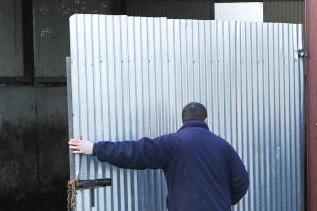
2. Swinging doors
While the winds of late have been strong, it doesn’t take strong winds to cause serious damage or personal injury around farmyards in the winter.
Large swinging doors are very dangerous so make plans how they can be managed. Can large swinging doors stay closed once stock are housed and another smaller rolling door be used as the main entrance? Can stoppers or a drop-down bar that prevents the door swinging wide open be welded on to the large swinging door to prevent it swinging wide open on a windy day.
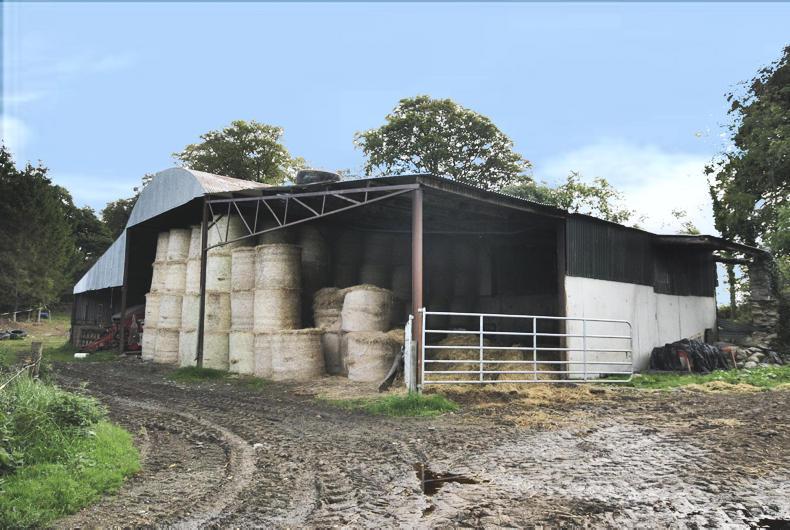
3. Bales
Whether square or round, hay or straw, or even silage – bales all present a climbing challenge for young visitors to the farmyard during winter when often it can be too wet to be outside. Most sheds are full at this stage as farmers prepare to bring stock indoors. Essentially, climbing these bales should simply not be allowed.
The consequences of falling down in between bales, falling off a stack of high bales or even falling the wrong way off one round or square bale is too much of a risk. Make getting to bales out of bounds and do what is necessary to fence and close off so young visitors and indeed stock can’t get to the bales.
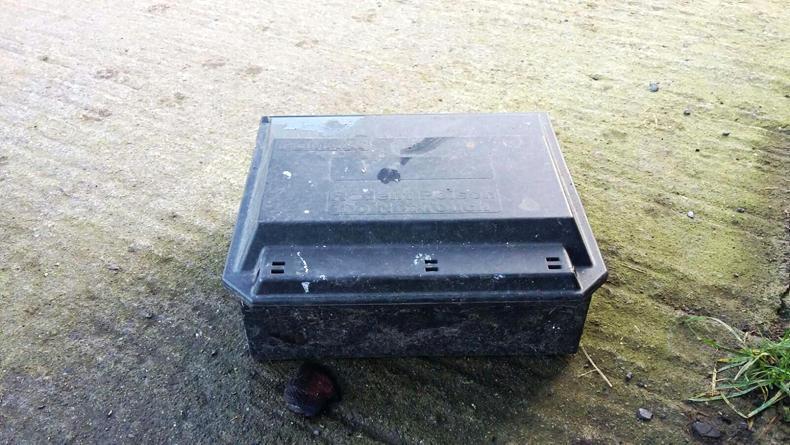
4. Rodent control
While temperatures this week have been closer to 20°C than 10°C, the arrival of October has seen rats and mice descend on farmyards to set up nests for the winter. Be careful how you set down bait to prevent house and farm pets gaining access to it and also to prevent livestock investigating it by accident.
Think about what stock could potentially get access if a gate was left open or if stock broke out. Ensure that no matter what the circumstance the bait should be covered and safe so that only rodents can access.
Watch out for storm damage
Farmers and your families, please be extra vigilant around your farms in the aftermath of ex-hurricane Ophelia.
This severe storm has caused extensive damage to the electricity network and infrastructure. Please look out for these hazards around your farm, in outbuildings and fields: fallen or low-hanging wires (particularly where clearance is compromised), trees or timber across wires and broken poles. 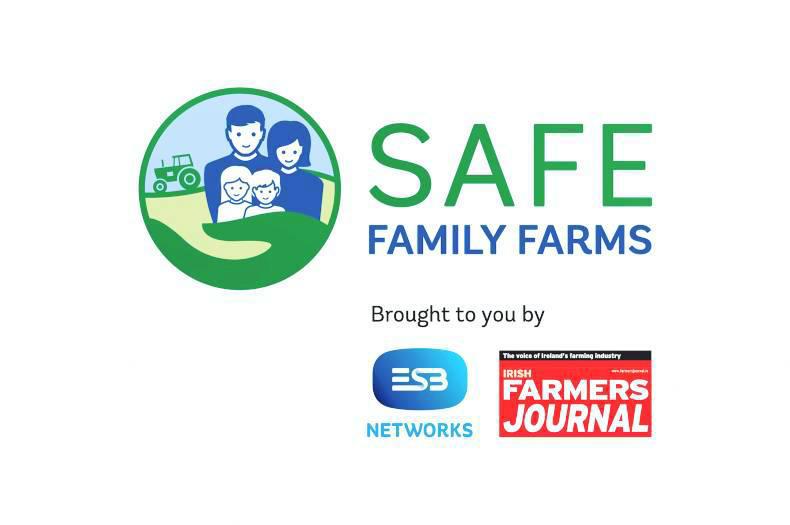 Wires and broken equipment are likely to be live and extremely dangerous.
Wires and broken equipment are likely to be live and extremely dangerous.
Do not go near any fallen or damaged wires or equipment and report to ESB Networks immediately at 1850 372 999. Also, it could take some time for trees and branches to fall in the aftermath of the storm and these may cause further damage. Never cut timber or trees near the electricity network. ESB Networks employs specialist timber contractors to cut trees near its network and this is free of charge. Please contact ESB Networks at 1850 372 999 to arrange this. Please be especially careful of children around the farm during the mid-term break.
Read more
Shed ventilation: go with the flow
Bedding options for dry dairy cows
How much straw do you need this winter?
How to keep rats under control on your farm
1. Sheds and loose sheets
After the strong winds of ex-hurricane Ophelia and storm Brian there are plenty of loose sheets of galvanise on many sheds.
If you have to go up a ladder to fix sheets, take the utmost care. Already we have seen too many accidents on farms trying to clear up after the recent strong winds.
If you must go up a ladder, at a minimum always have someone with you. Aim to stabilise the ladder securely and if possible have a secure sling that would prevent you from falling should you slip. Again, if you must go up high then try and have scaffolding that would make the job safer and easier to complete when you are up there. Going up high on loaders that are not purpose-built can be very dangerous.

2. Swinging doors
While the winds of late have been strong, it doesn’t take strong winds to cause serious damage or personal injury around farmyards in the winter.
Large swinging doors are very dangerous so make plans how they can be managed. Can large swinging doors stay closed once stock are housed and another smaller rolling door be used as the main entrance? Can stoppers or a drop-down bar that prevents the door swinging wide open be welded on to the large swinging door to prevent it swinging wide open on a windy day.

3. Bales
Whether square or round, hay or straw, or even silage – bales all present a climbing challenge for young visitors to the farmyard during winter when often it can be too wet to be outside. Most sheds are full at this stage as farmers prepare to bring stock indoors. Essentially, climbing these bales should simply not be allowed.
The consequences of falling down in between bales, falling off a stack of high bales or even falling the wrong way off one round or square bale is too much of a risk. Make getting to bales out of bounds and do what is necessary to fence and close off so young visitors and indeed stock can’t get to the bales.

4. Rodent control
While temperatures this week have been closer to 20°C than 10°C, the arrival of October has seen rats and mice descend on farmyards to set up nests for the winter. Be careful how you set down bait to prevent house and farm pets gaining access to it and also to prevent livestock investigating it by accident.
Think about what stock could potentially get access if a gate was left open or if stock broke out. Ensure that no matter what the circumstance the bait should be covered and safe so that only rodents can access.
Watch out for storm damage
Farmers and your families, please be extra vigilant around your farms in the aftermath of ex-hurricane Ophelia.
This severe storm has caused extensive damage to the electricity network and infrastructure. Please look out for these hazards around your farm, in outbuildings and fields: fallen or low-hanging wires (particularly where clearance is compromised), trees or timber across wires and broken poles.  Wires and broken equipment are likely to be live and extremely dangerous.
Wires and broken equipment are likely to be live and extremely dangerous.
Do not go near any fallen or damaged wires or equipment and report to ESB Networks immediately at 1850 372 999. Also, it could take some time for trees and branches to fall in the aftermath of the storm and these may cause further damage. Never cut timber or trees near the electricity network. ESB Networks employs specialist timber contractors to cut trees near its network and this is free of charge. Please contact ESB Networks at 1850 372 999 to arrange this. Please be especially careful of children around the farm during the mid-term break.
Read more
Shed ventilation: go with the flow
Bedding options for dry dairy cows
How much straw do you need this winter?
How to keep rats under control on your farm



 Wires and broken equipment are likely to be live and extremely dangerous.
Wires and broken equipment are likely to be live and extremely dangerous. 




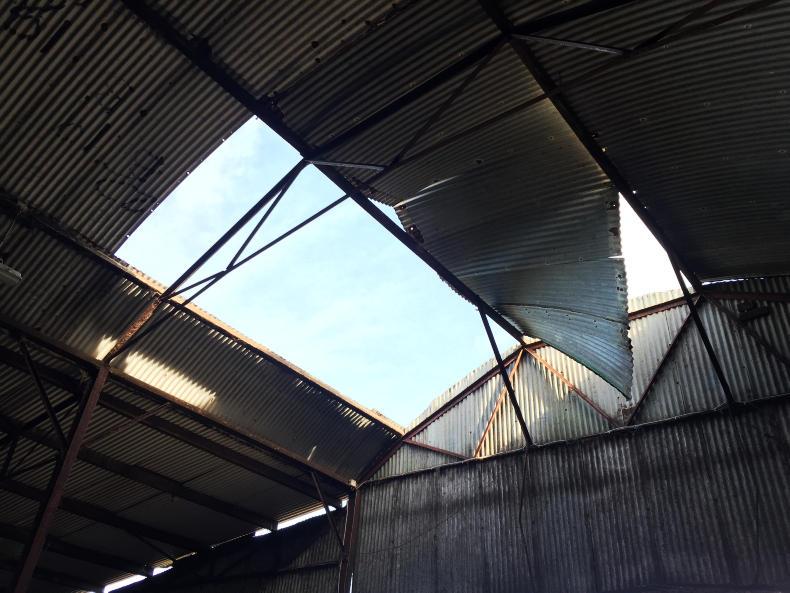
SHARING OPTIONS